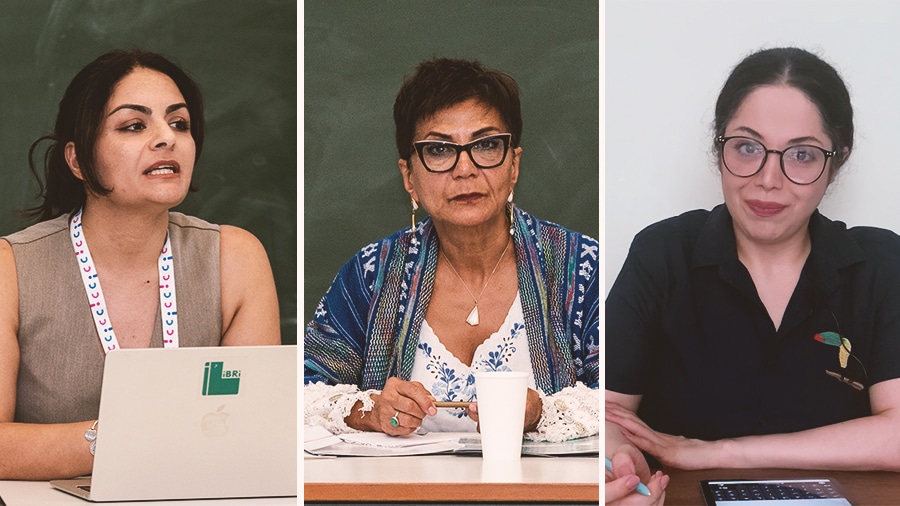Soma Negahdarinia
Litigation as Resistance, Mothers as Protesting Actors (Case of Study: Kurdistan Litigating Mothers and their Protest Action from 1979-2022)
Asefeh Rezai
Motherhood in the Field of Change: Examining the Impact of Mothers’ Role in Social and Political Movements
Moderator: Mansoureh Shojaee
Abstracts
Soma Negahdarinia
Litigation as Resistance, Mothers as Protesting Actors (Case of Study: Kurdistan Litigating Mothers and their Protest Action from 1979-2022)
Negahdarinia’s study specifically examines Kurdish mothers who, since the 1979 Iranian Revolution, have engaged in political resistance and advocacy for justice, seeking accountability for the forced disappearances and extrajudicial executions of their family members by the Islamic Republic.
These women, largely overlooked by broader Iranian society and human rights organizations, initiated grassroots actions under high-security restrictions in Kurdistan, resisting both political oppression and the social and geographic marginalization imposed by the Iranian regime.
Using archival documents, interviews, and witness testimonies, Negahdarinia’s research highlights the unique role of Kurdish mothers as early pioneers in Iran’s justice-seeking movement, beginning their activism in the late 1970s—a decade before similar efforts arose elsewhere in the country, such as the “Mothers of Khavaran.”
Negahdarinia argues that these Kurdish mothers represent an unrecognized yet significant chapter in Iran’s history of resistance.
Their activism challenges the prevailing narrative that credits later groups, like the Khavaran mothers who emerged after the 1988 mass executions, as Iran’s original justice-seeking mothers.
By filling in these historical gaps, her research reveals the long-standing and radical role of Kurdish mothers, whose political engagement has often been dismissed or obscured due to regional and cultural biases within Iranian and feminist historiographies. Negahdarinia calls for a reassessment of feminist studies and human rights discourses in Iran, asserting the importance of recognizing and understanding the contributions of Kurdish mothers to the nation’s broader social movements.
Asefeh Rezai
Motherhood in the Field of Change: Examining the Impact of Mothers’ Role in Social and Political Movements
Asafeh Rezai’s work broadens the perspective on maternal activism, situating it within a global context and examining how motherhood serves as a powerful mobilizing identity across diverse cultures. Rezai compares maternal activism in Iran with that of the Argentine Mothers of the Plaza de Mayo, who advocated for their disappeared children during Argentina’s dictatorship.
Her research analyzes the concept of “mother-centered” or “maternal” activism through a materialist feminist framework, showing how maternal identity can be leveraged to gain moral authority and civic rights. Rezai’s study investigates the complexities of transferring traditionally private maternal roles into the public and political sphere, where cultural values related to motherhood intersect with social expectations, creating both empowerment and tension for the activists.
Rezai also employs theories such as intersectionality and public versus private domains to reveal the social and gendered dynamics within maternal activism.
By examining the interactions between materialism and feminism, she illustrates how motherhood-based mobilization can empower women within their communities, transforming maternal care from a domestic obligation into a public act of resistance.
This intersectionality allows the movement to address not only gender-based oppression but also broader structural injustices, making the mother-centered activism both a symbol of resistance and a call for structural change.



